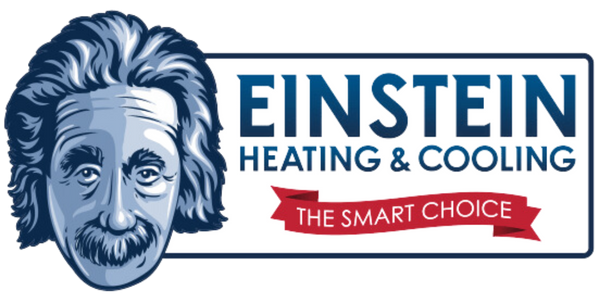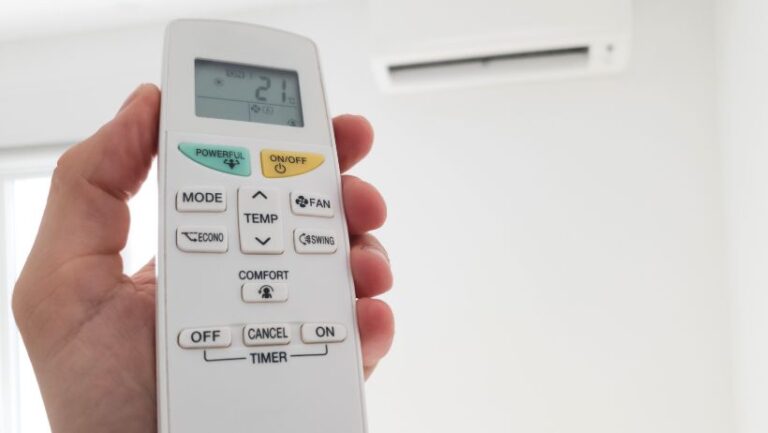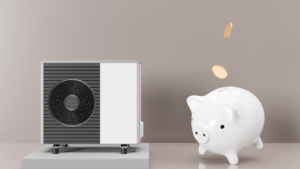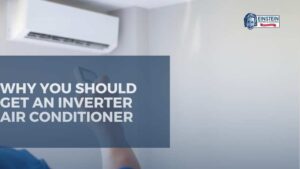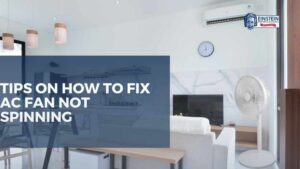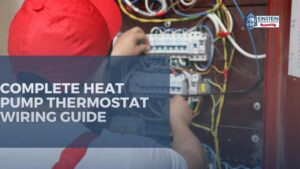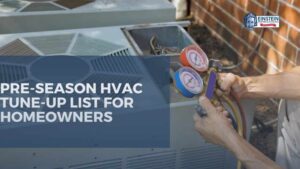When it comes to surviving a scorching summer in Phoenix, your HVAC system becomes your best friend. To ensure your home remains cool and comfortable, it’s essential to prepare your HVAC system adequately. In this comprehensive guide, we will explore how to get your HVAC system ready for a cool and comfortable Phoenix summer.
Factors to Consider When Preparing Your HVAC System for a Phoenix Summer
Preparing your HVAC system for the summer heat in Phoenix involves several crucial factors. Let’s delve into these factors, each with its own set of considerations.
1. Routine Maintenance and Inspection
Regular maintenance is the foundation of a well-functioning HVAC system.
- Professional Service: Schedule a professional HVAC inspection and maintenance service before the summer season. A certified technician can identify and address any issues before they escalate.
- Filter Replacement: Replace or clean the air filters regularly, ideally every 1 to 3 months, to ensure optimal airflow and efficiency. Clean filters also promote better indoor air quality.
- Coil Cleaning: Clean the evaporator and condenser coils to maximize cooling efficiency. Dirty coils can reduce the system’s ability to transfer heat effectively.
2. Thermostat Optimization
Your thermostat plays a pivotal role in maintaining indoor comfort.
- Programmable Thermostat: Consider upgrading to a programmable thermostat to schedule temperature adjustments for energy savings. You can program it to raise the temperature when you’re away and lower it before you return.
- Temperature Settings: Set your thermostat to an energy-efficient temperature range when you’re away from home. Raising the thermostat by a few degrees can lead to significant energy savings.
3. Air Duct Inspection and Sealing
Efficient ductwork is crucial for even cooling throughout your home.
- Duct Inspection: Have your ducts inspected for leaks, blockages, or damage. Leaky ducts can waste cool air and increase energy consumption.
- Sealing and Insulation: Seal any leaks found during the inspection and ensure proper insulation to prevent cool air from escaping. Properly sealed ducts can improve efficiency by up to 20%.
4. Checking Refrigerant Levels
Adequate refrigerant levels are essential for your HVAC system’s cooling capacity.
- Refrigerant Inspection: Have a professional check and replenish refrigerant levels if necessary. Low refrigerant levels can lead to reduced cooling efficiency and potentially damage your compressor.
- Leak Detection: Ensure there are no refrigerant leaks in your system. Refrigerant leaks should be promptly repaired to prevent further damage and environmental harm.
5. Condensate Drain Cleaning
A clogged condensate drain can lead to water damage and reduced efficiency.
- Regular Cleaning: Keep the condensate drain line clear of debris and algae growth. A clogged drain can cause water backups and potential water damage to your system and home.
6. Inspecting Outdoor Unit
The outdoor unit of your HVAC system must be in top condition.
- Clear Debris: Remove any debris, leaves, or obstructions from around the outdoor unit. Ensure there’s at least 2 feet of clear space around it to allow for proper airflow.
- Proper Airflow: Ensure there is ample space for airflow around the unit. Restricted airflow can cause the system to overheat and reduce efficiency.
7. Check Electrical Components
Electrical components need to be inspected for safety and efficiency.
- Tighten Connections: Check and tighten electrical connections to prevent electrical issues and ensure the system operates safely.
- Inspect Wiring: Ensure wires and cables are in good condition, with no exposed or damaged wires that could lead to malfunctions.
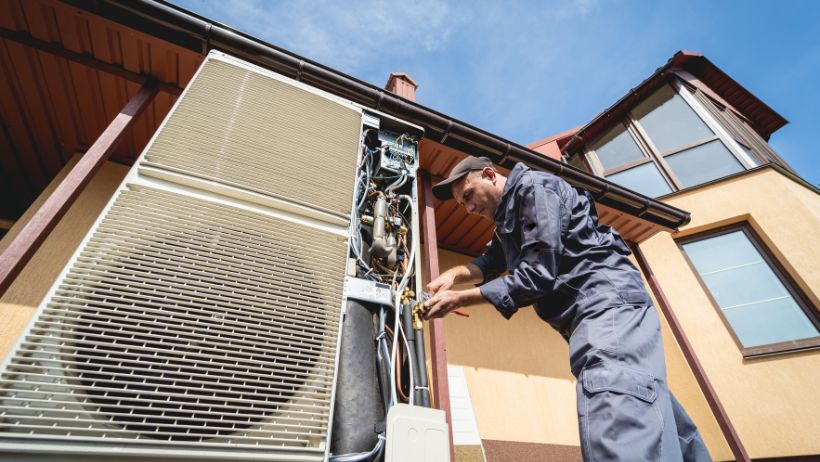
8. Upgrade to Energy-Efficient Systems
Consider upgrading to energy-efficient HVAC systems.
- High SEER Rating: Choose HVAC systems with a high Seasonal Energy Efficiency Ratio (SEER) for better cooling efficiency. A higher SEER rating indicates greater energy efficiency.
- Smart Thermostats: Invest in smart thermostats that can adapt to your cooling needs efficiently. These thermostats can learn your preferences and optimize cooling schedules.
9. Shade and Insulation
Improving your home’s insulation and providing shade can reduce the load on your HVAC system.
- Window Coverings: Use shades, blinds, or window films to block out the sun’s heat during the hottest part of the day. This reduces the strain on your HVAC system.
- Improved Insulation: Upgrade insulation in your home to keep the cool air in and the hot air out. Well-insulated homes are more energy-efficient and comfortable.
10. Regular Filter Replacement
Clean filters promote better indoor air quality and system efficiency.
- Monthly Check: Check and replace or clean air filters every month during the summer season. Dirty filters restrict airflow, making your HVAC system work harder.
- High-Efficiency Filters: Consider using high-efficiency air filters to capture more particles and improve indoor air quality. These filters can help reduce allergens and dust in your home.
11. Consider Zoning
Zoning and proper sizing of HVAC allow for customized cooling in different areas of your home.
- Zoning Systems: Install a zoning system to cool specific zones, optimizing comfort and energy usage. This is especially beneficial for multi-story homes or houses with varying cooling needs.
12. Ceiling Fan Usage
Ceiling fans can complement your HVAC system’s cooling efforts.
- Counterclockwise Rotation: Set your ceiling fans to rotate counterclockwise during the summer months. This creates a cooling breeze, making the room feel cooler without lowering the thermostat.
- Energy Efficiency: Use fans to distribute cool air efficiently, allowing you to set your thermostat a few degrees higher without sacrificing comfort.
13. Regularly Clean Vents and Registers
Blocked vents and registers can restrict airflow.
- Remove Obstructions: Ensure vents and registers are free from obstructions like furniture or drapes. Proper airflow helps cool your home more efficiently.
- Vacuum Cleaning: Regularly vacuum and clean vents to remove dust and debris. Clean vents promote better indoor air quality.
14. Shade for the Outdoor Unit
Providing shade for the outdoor unit can improve its efficiency.
- Shade Structure: Consider installing a shade structure, such as a pergola or awning, or planting shrubs to provide shade for the outdoor unit. A cooler outdoor unit operates more efficiently.
15. Monitor Humidity Levels
Maintaining the right indoor humidity levels enhances comfort.
- Humidifier/Dehumidifier: Consider using a humidifier in dry conditions to add moisture to the air and a dehumidifier when it’s excessively humid to remove excess moisture. Balanced humidity levels contribute to a more comfortable indoor environment.
16. Emergency Preparedness
Prepare for unexpected HVAC system failures during extreme heat.
- Backup Cooling: Have a backup cooling plan in place, such as portable air conditioners or fans. These can provide temporary relief in case your HVAC system fails.
- HVAC Service Contacts: Keep contact information for HVAC service providers who offer 24/7 emergency service. Quick response times during HVAC emergencies can make a significant difference in your comfort and safety.
17. Clean Around Outdoor Unit
Keep the area around your outdoor unit clean and unobstructed.
- Trim Vegetation: Trim back any vegetation that might impede airflow around the outdoor unit. Adequate airflow is crucial for efficient operation.
- Regular Cleaning: Clear debris and dirt from around the unit to prevent obstructions. Regular maintenance includes keeping the area clean.
18. Consider Solar Solutions
Phoenix’s abundant sunshine can be harnessed for energy savings.
- Solar Panels: Explore the installation of solar panels to power your HVAC system and reduce energy costs. Solar-powered HVAC systems can significantly reduce your reliance on the electrical grid and lower your energy bills over time.
19. Inspect and Replace Damaged Ducts
Leaky or damaged ducts can lead to efficiency losses.
- Professional Inspection: Have a professional inspect your ducts to identify any leaks or damage. Damaged ducts can lead to air loss and reduced efficiency.
- Repair or Replace: Depending on the extent of the damage, either repair or replace damaged duct sections. Properly sealed and insulated ducts improve efficiency and cooling performance.
20. Optimize Fan Settings
Understanding your HVAC system’s fan settings can improve cooling efficiency.
- Auto vs. On: Use the “Auto” setting for the fan to circulate air only when needed. Running the fan continuously can increase energy consumption and utility bills.
Conclusion
Preparing your HVAC system for a comfortable Phoenix summer requires attention to detail and regular maintenance. If you’re still on the fence about HVAC installation, make sure to check all resources available as HVAC systems are appropriate for your home. By addressing these essential factors, you can ensure your HVAC system operates at its best, keeping your home cool and energy-efficient throughout the hot season. Remember that professional assistance from experts like Einstein Heating and Cooling can make the process smoother and more effective. Stay cool and enjoy a comfortable summer in the Valley of the Sun with a well-prepared HVAC system.
